I'm looking for the final conversation that took place between Rasoolalah
 and Jibreel (as), when he was on his death bed and was crying for the Ummah.
and Jibreel (as), when he was on his death bed and was crying for the Ummah.
Need to verify something, anyone know where I can find it ??


 and Jibreel (as), when he was on his death bed and was crying for the Ummah.
and Jibreel (as), when he was on his death bed and was crying for the Ummah.










 " volume 2 page 152 onwards and didn't see anything about the conversation with jibreel (as).
" volume 2 page 152 onwards and didn't see anything about the conversation with jibreel (as).
 Allama Shibli Nomani & Syed Suleman Nadvi.
Allama Shibli Nomani & Syed Suleman Nadvi.


 last moments.. with references.. but No mention of this conversation..
last moments.. with references.. but No mention of this conversation..
 number.. The most extensive work on Seerat spreading 13 volumes.. ( Alas.. its at my little library back home)
number.. The most extensive work on Seerat spreading 13 volumes.. ( Alas.. its at my little library back home)

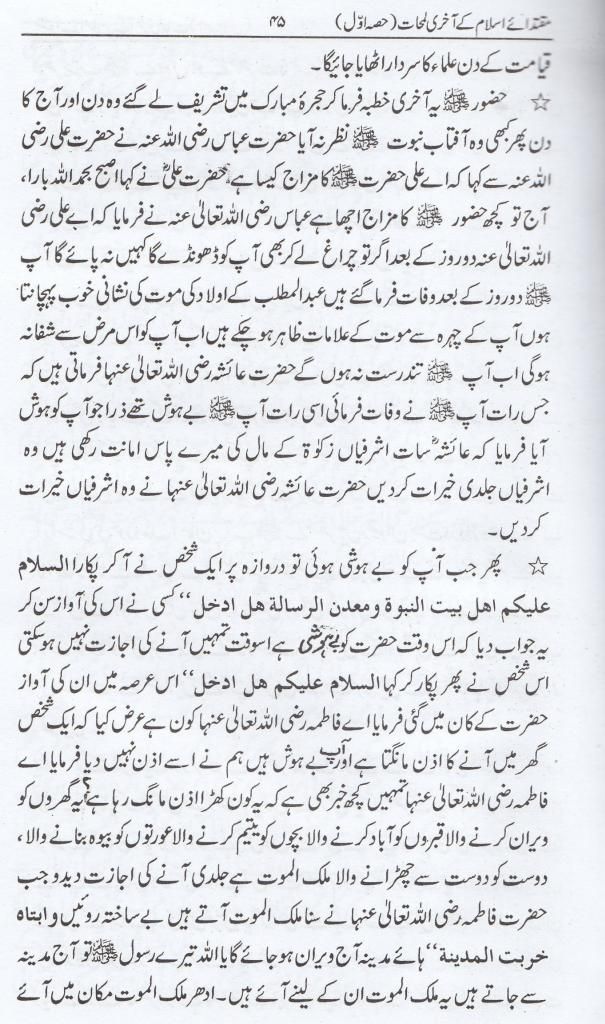
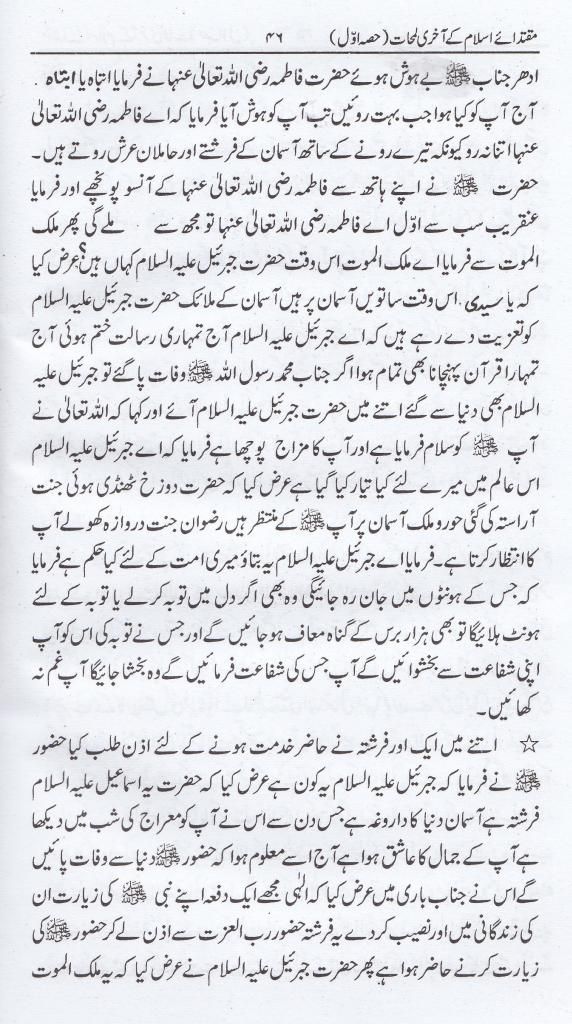
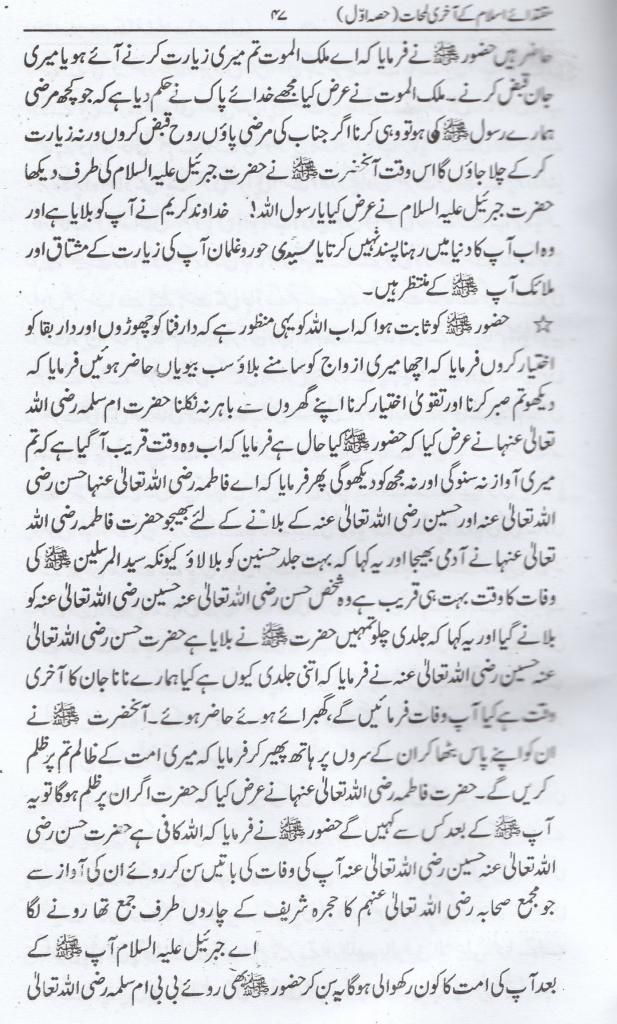
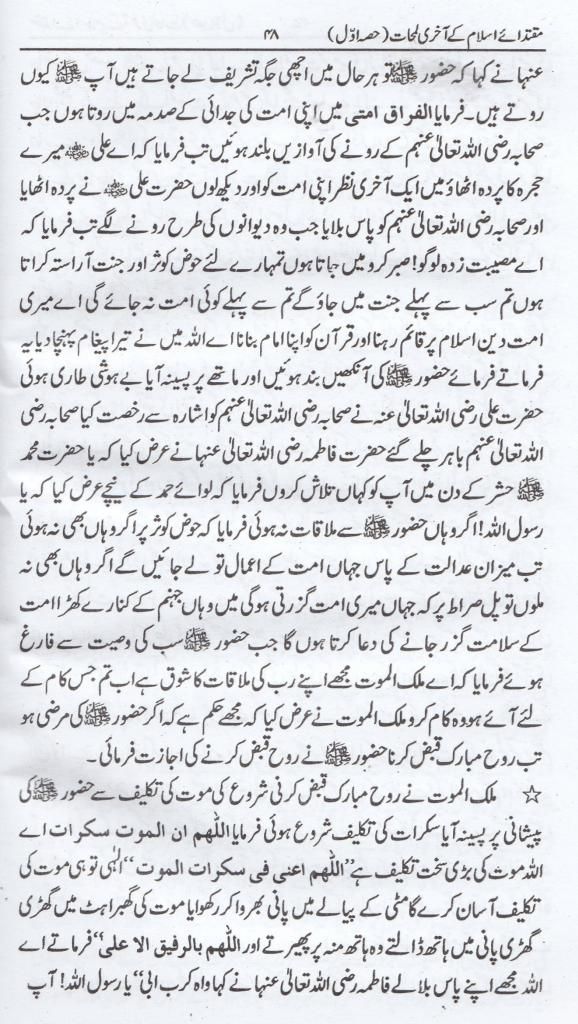
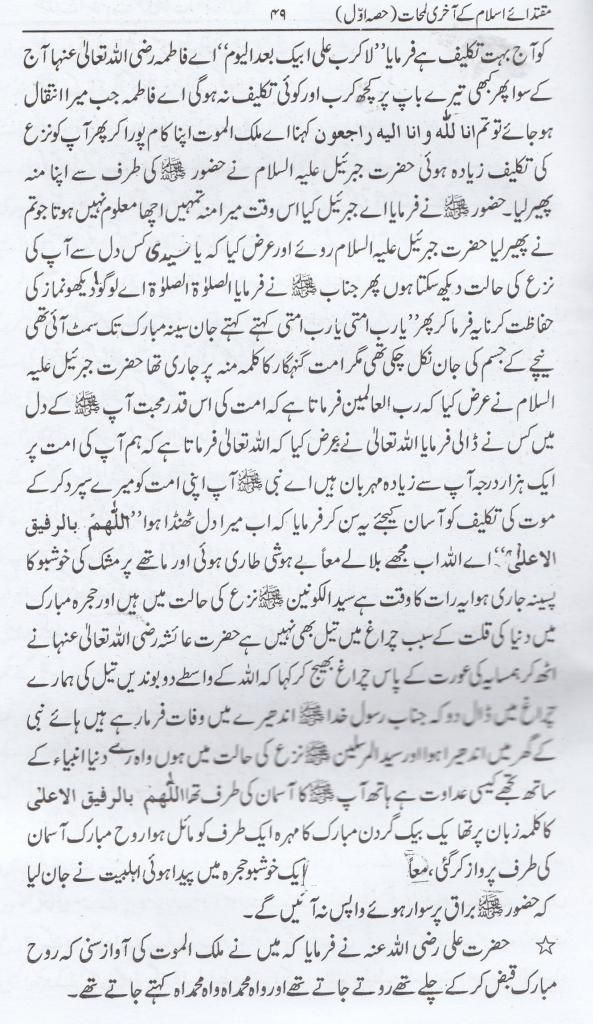



 par Quran me Istidlal
par Quran me Istidlal
 Quran ki Roshni me ( Again a separately published book by Maulana Abdul Majid Daryabadi رحمة الله عليه )
Quran ki Roshni me ( Again a separately published book by Maulana Abdul Majid Daryabadi رحمة الله عليه )

 ka maqsade busat Quran ki Roshni me
ka maqsade busat Quran ki Roshni me
 me Quran Majeed ki tarteeb o tadween
me Quran Majeed ki tarteeb o tadween





 , he informed him that the Angel of Death is at the door asking for his permission to come to him. He has never asked for anyone��s permission before, and so the Prophet
, he informed him that the Angel of Death is at the door asking for his permission to come to him. He has never asked for anyone��s permission before, and so the Prophet  said, let him come in. The Angel of Death came in and said Assalam to the Prophet
said, let him come in. The Angel of Death came in and said Assalam to the Prophet  . He said, ��Allah سبحانه وتعالى sent me to you to let you choose between staying here on Earth or being with Allah سبحانه وتعالى .��
. He said, ��Allah سبحانه وتعالى sent me to you to let you choose between staying here on Earth or being with Allah سبحانه وتعالى .��  chose to be with his creator, Allah سبحانه وتعالى . The Angel of Death stood at his head and said, ��Oh, beautiful soul, soul of Mohammad
chose to be with his creator, Allah سبحانه وتعالى . The Angel of Death stood at his head and said, ��Oh, beautiful soul, soul of Mohammad  , come out to your satisfied lord.�� Aisha (RAA) had said that the Prophet��s
, come out to your satisfied lord.�� Aisha (RAA) had said that the Prophet��s  hand fell and she felt his head get heavy in her chest; knowing that he died.''
hand fell and she felt his head get heavy in her chest; knowing that he died.''
 without certainty.
without certainty.
This cannot be undone and I am sure it will be greatly appreciated.
Please wait...